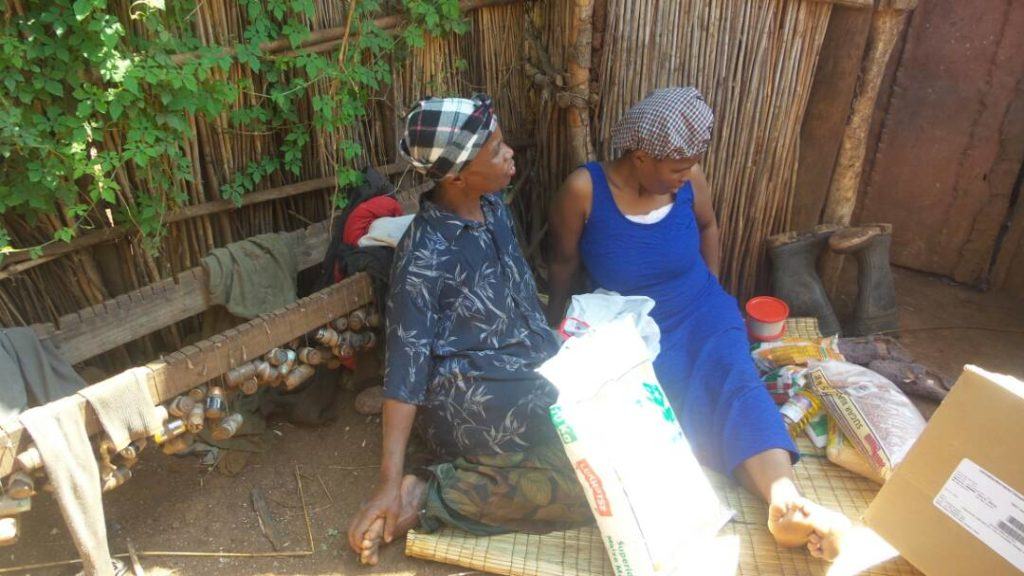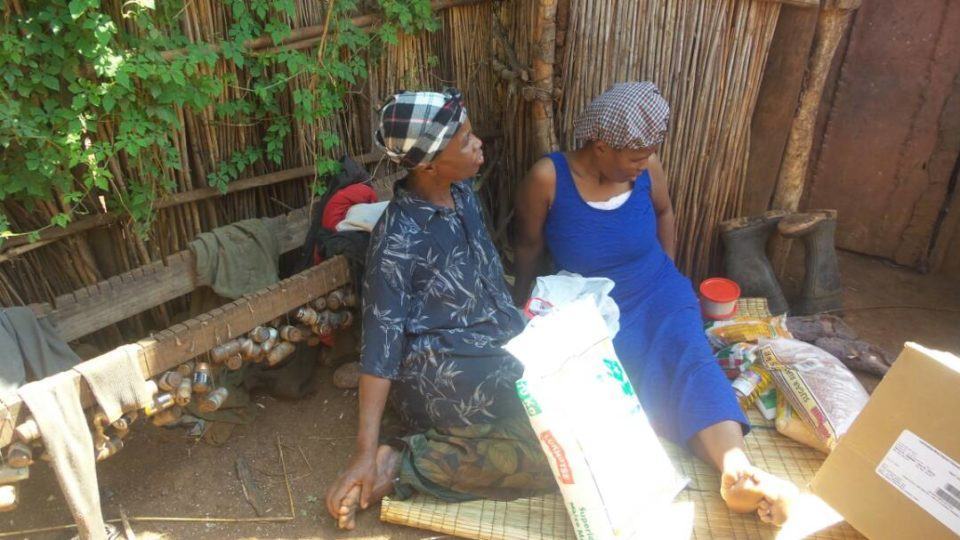February 4th is World Cancer Day – a day that unites the world’s population in the fight against cancer. It aims to save millions of preventable deaths each year by raising awareness and education about the disease, calling on governments and individuals around the globe to take action.
In the remote, poor communities where we work, cancer often ends life too soon. Without access to specialized healthcare, medicines, or treatments, the only thing our staff can do is ensure that patients are treated with dignity and love. Our long-time partners at the Good Shepherd Mission Hospital in Swaziland, have been bringing palliative care to the sick and dying in Swaziland for many years.
This story is not about a life saved, but rather about dignity restored and a reminder that even when there is nothing left to be done, there is always something that can be done.
A Difficult Life
Tangetile had a difficult life. Unable to find work in Swaziland, she moved to South Africa in an attempt to build a better life. It was here that she got married and gave birth to daughter. Shortly after her daughter was born, her husband abandoned her, and a challenging life became even more difficult.
Tengetile then became ill. She was diagnosed with HIV/AIDS. With very few options, she continued to work to support herself and her baby but soon developed intense abdominal pain and other symptoms that did not go away. It was during a visit to the hospital that she was given the devastating news that she had cervical cancer. Alone and far from home, Tengetile realized that she could no longer manage to give her daughter what she needed. In need of love and care, she returned to Swaziland to live with her mother.

Tengetile sits outside her home with her mother.
Shortly after her return, her condition worsened. Unsure how to access antiretroviral medication and too sick and poor to travel back to South Africa where the medication had first been prescribed, she stopped taking the medicine. As a result her condition worsened. Unable to give Tengetile the care she needed, her mother brought her to Good Shepherd Mission Hospital. She was anemic due to active bleeding, and had a fever due to infection. Tengetile had developed a fistula and was very weak.
The doctors did their best to stabilize her with blood transfusions and restart her HIV treatment, but the illness was too far gone. Staff referred her to our home-based care and palliative team for symptom management and support. The team taught Tengetile and her mom how to administer morphine for the pain and sent them home.
Home-Based Care
A few days later, our team went to visit Tengetile. They were shocked and saddened by the conditions of the family’s home. In addition to the terrible condition of the stick and mud structure, there was only one, thin mattress. Tengetile’s mother and daughter slept on the dirt floor so that Tengetile could have the mattress. She was in such severe pain despite the morphine. With Tengetile unable to work and her mother earning very little from hours spent in the sugar cane fields, the family had very little food. They also lacked access to clean, safe water. As a result, they were all very weak.
Their homestead was almost 30km (~25 miles) from the Good Shepherd Hospital but the team visited them frequently, knowing the severity of Tengetile’s symptoms and the desperate need for family support. Each time they returned they increased the morphine, hoping to reduce the severe pain Tengetile suffered.
They also wanted to try to control the nausea, vomiting, and weakness that was making Tengetile’s life unbearable. In an effort to increase her physical comfort, the team brought mattresses, food packs, and skin care products. And in an attempt to bring some emotional relief, they provided counseling to both Tengetile and her mother.
Final Days
Tengetile knew she was dying—she knew her time was running out. In the midst of all her physical pain, she had only one hope. That her mother would be able to care for her young daughter and that she would be able to go to school. The team promised to fulfill her wish—they told her they would work hard to gather the necessary documents to ensure that Tengetile’s mother would be her daughter’s legal guardian.
Sadly, Tengetile died on January 14, 2018 at home with her mother and daughter by her side. May she rest in peace.
Today and every day let us remember that when there is no medicine or care that can help, it is love and hope that can guide us through.

